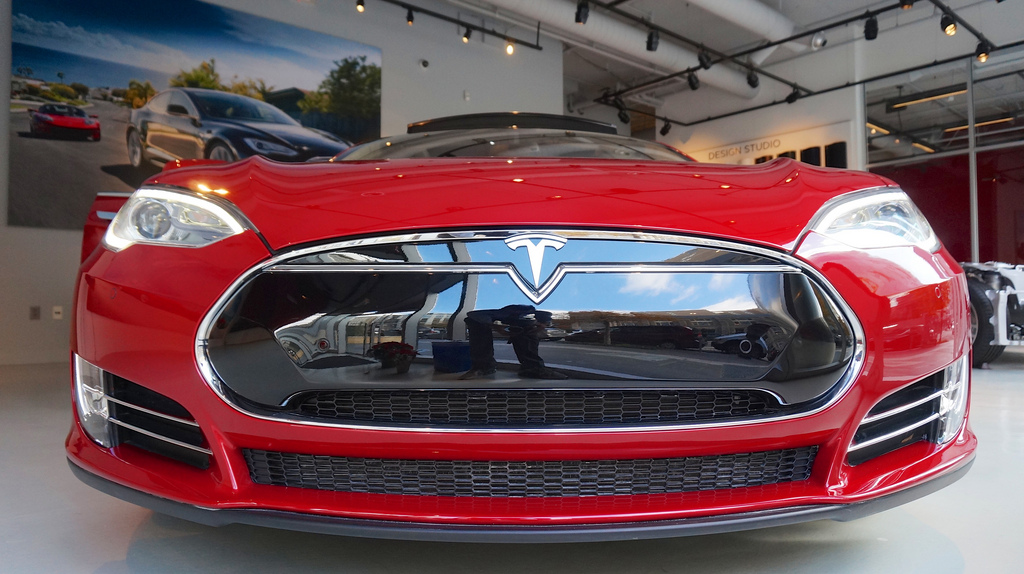Following recent developments in the trade disputes between the U.S. and China, Taiwan-based market analyst company, EnergyTrend, a division of TrendForce, says imposed tariffs will affect the Chinese car industry, athough the EV market will continue to grow.
The U.S. has listed 28 items, ranging from Chinese imports of smaller vehicle components, to entire cars, to protect its markets. China, in turn, has increased tariffs on imported cars to 40%. According to EnergyTrend, China's car imports make up 5% of its total domestic market.
Despite this, the analysts say that through credit score systems specially designed for EVs and other financial incentives, the EV market will continue to grow, irrespective of the tariffs. Furthermore, EnergyTrend believes the tariffs, in conjunction with Chinese measures to offset them, will effectively promote the assembly of vehicles in China directly. For this, Chinese and foreign car companies are expected to more closely cooperate. Local production of components is unlikely to take place, however.
Pricing trends
Recent trends in battery pack pricing, emission target policies, and other legislative tools, led the market analysts to predict that the global EV market will continue to grow sturdily, irrespective of tariffs.
The global market share of EV's is expected to reach 5% by 2020, and 8 to 9% in 2023, the analysts say. There are multiple reasons for this development, chief among which are decreasing costs of battery systems.
EnergyTrend cites lower demand for cobalt as a reason for lower battery prices, with new developments in high voltage battery systems using higher ratios of nickel instead. According to the analysts, the costs of battery storage were US$400 to 600 per kWh, in 2016. During 2018, these fell to around $250 to $300 per kWh, and are likely to drop below $200 per kWh in 2019.
Hydrogen
Furthermore, continually improving battery capacities will allow EVs to take market share from hydrogen fuel cell vehicles. Currently, most EV models are used for short- to mid-range distances of between 200 to 400 km, the analysts say. Soon, however, improved technology will allow EVs with a range of 400 to 600 km, charging into territory that hitherto was dominated hydrogen fuel cell vehicles.
The analysts also highlight the cheaper costs of battery storage compared to hydrogen fuel cells. Currently, battery systems in EVs cost around $15,000, and are expected to fall below $10,000 in 2020. Fuel cell systems by comparison, cost around $20,000, showing a significant gap between the two systems.
Thriving
Carbon emission targets are another driver of market development. In Europe, carbon emission targets for vehicles were 124g/km in 2015, and are set to be 95g/km in 2020. In North America, the figures were 150g/km in 2015, and 130g/km in 2020. In China, by 2020 the target is 119g/km, marking the first time China will introduce a stricter C02-target than the U.S.
A newly published report by BloombergNEF provides further evidence that the market is thriving. The report shows that among the most significant venture capital series rounds in 2017, EV companies are high up the list.
Chinese lithium-ion battery maker, Contemporary Amperex Technology (CATL), for instance, raised $852.5 million in an initial public offering. Meanwhile, Youxia Motors and Future Mobility Corporation, two other EV companies from China, raised $795 million and $500 million, respectively, in series B venture capital rounds, and series B rounds if its own.
This content is protected by copyright and may not be reused. If you want to cooperate with us and would like to reuse some of our content, please contact: editors@pv-magazine.com.




By submitting this form you agree to pv magazine using your data for the purposes of publishing your comment.
Your personal data will only be disclosed or otherwise transmitted to third parties for the purposes of spam filtering or if this is necessary for technical maintenance of the website. Any other transfer to third parties will not take place unless this is justified on the basis of applicable data protection regulations or if pv magazine is legally obliged to do so.
You may revoke this consent at any time with effect for the future, in which case your personal data will be deleted immediately. Otherwise, your data will be deleted if pv magazine has processed your request or the purpose of data storage is fulfilled.
Further information on data privacy can be found in our Data Protection Policy.